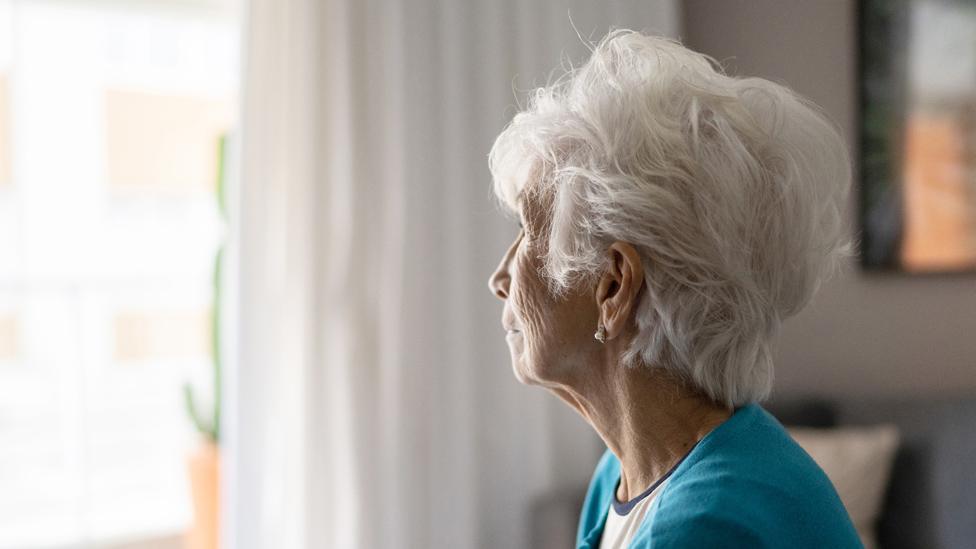Sir Jackie Stewart: 'My wife lives in a new world'
Sir Jackie says dementia is something no family member should ever experience
- Published
Motor racing legend Sir Jackie Stewart has emotionally recounted the moment his wife forgot who he was, as his charity funds a new dementia blood test.
The three-time F1 champion said Lady Stewart inquired "where's Jackie?" while sitting with him.
He said the changes he had seen in his wife were the reason he had founded Race Against Dementia, which is funding a new blood test trial developed by the University of Cambridge.
The study hopes to detect signs of frontotemporal dementia decades before it develops.
Lady Stewart was diagnosed with the same type of dementia in 2014, and Sir Jackie said the behaviour and language changes he had witnessed were "horrendous".
"Just the other day it was time for dinner, she's getting up and I'm sitting close by, and she says, 'Where's Jackie?' That's the first time that's happened and that's only a few weeks ago," he said.
"A bad feeling came over me," he added, describing Lady Stewart's mind as being in "a new world".
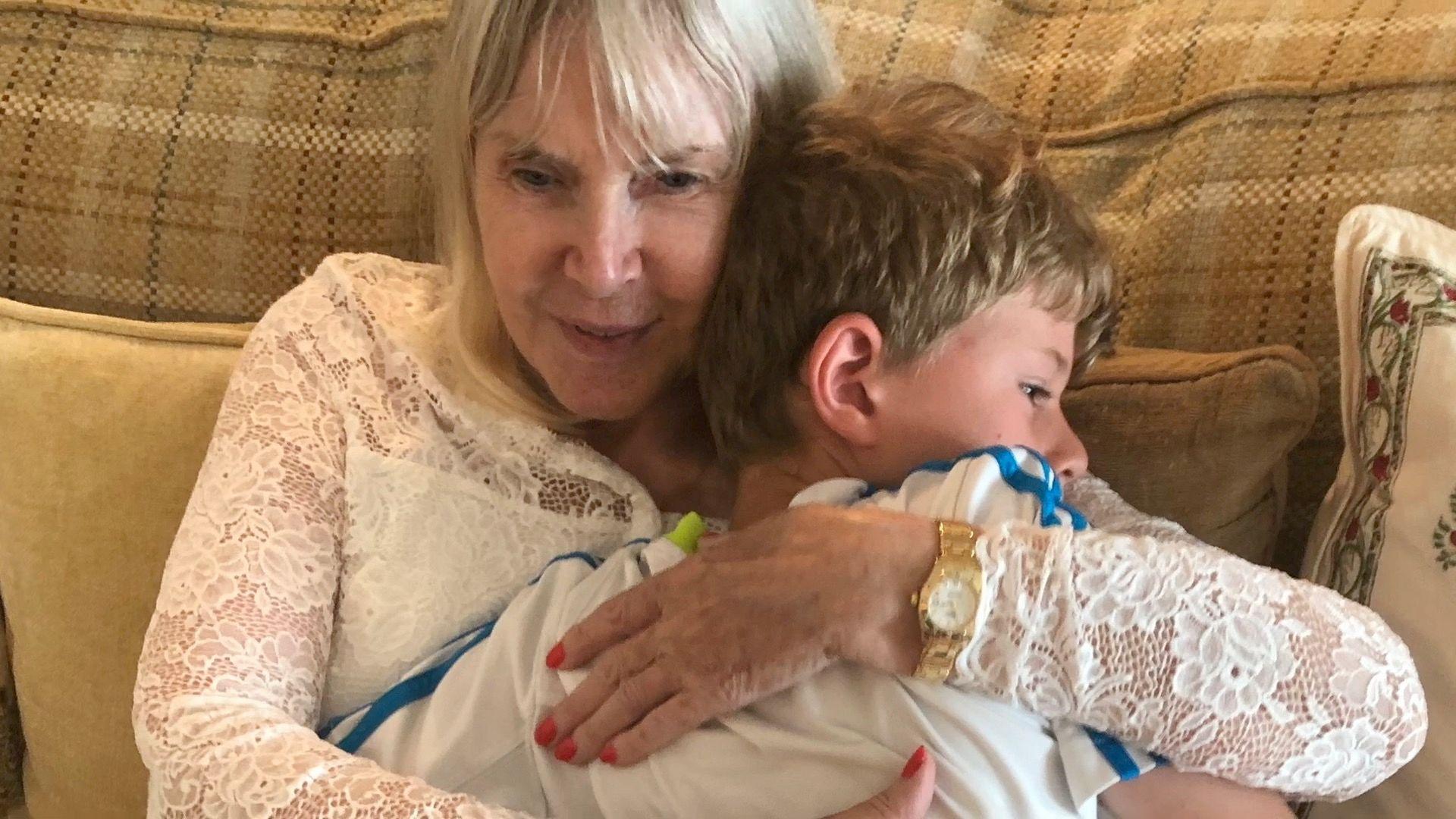
Sir Jackie's wife Lady Stewart was diagnosed with frontotemporal dementia in 2014
Sir Jackie, who lives in Buckinghamshire but is from Scotland, described how his wife of more than 60 years had been diagnosed with dementia after she lost control of her small car and it landed on its roof.
No-one had been hurt, he said, but the incident had led to an "awareness that something wasn't right".
A decade later, Sir Jackie said the progression of the disease was such that Lady Stewart could no longer walk.
"I know that Helen doesn't mean it when she suddenly goes round and hits me, or the [specialist dementia] nurses," he said.
"She can hit somebody quite often, she uses language that she's never ever said in her life and it comes like that [clicks his fingers] and I say 'darling, darling, don't say that'.
"She says 'Why?' And she'll give me a row for doing that. That's usually after 17:00."
'"Sundowning", external is a common feature of dementia, where the brain tires and a person becomes more agitated later in the day.
'I leave in tears'
Sir Jackie created an accessible home in Switzerland for Lady Stewart without steps or obstacles - and they employ nurses and specialist neurosurgeons.
He said he was aware of the privilege his F1 career had afforded him, and that for many families the only option was residential care.
"I visit homes for people with dementia and I leave in tears because people are completely lost," he said.
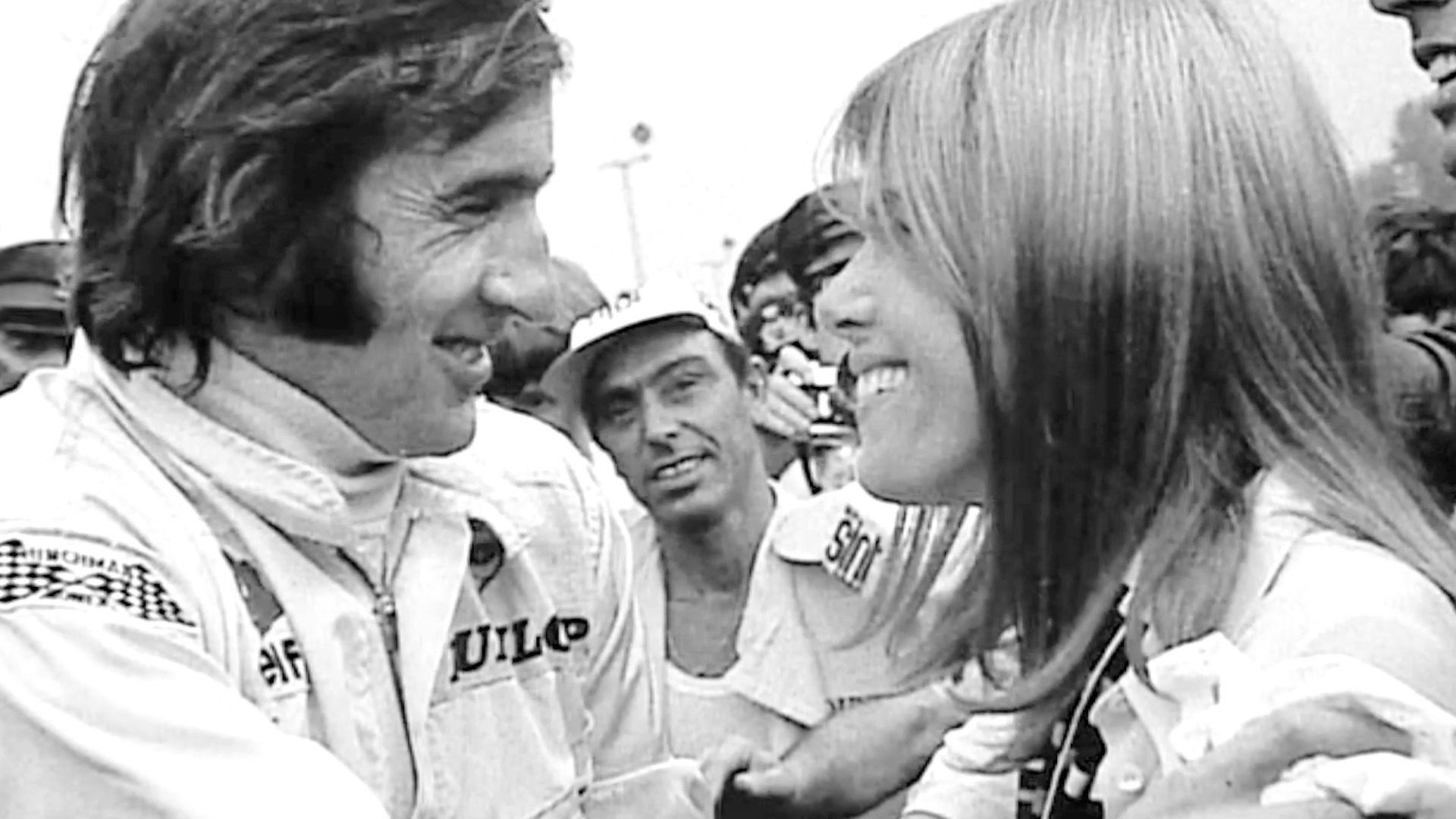
Sir Jackie said Lady Stewart had been key to his success, timing his race laps in the 1960s and 1970s
One in three people will develop dementia in their lifetime, which Sir Jackie describes as a "disaster".
He said friends and a former secretary had also been diagnosed and understanding the brain was "bigger than going to the moon".
Research progress had been "very slow", with the medical profession "failing so far" and diseases like cancer being prioritised, he said.
His charity is now funding the development of a new blood test trial to detect signs of frontotemporal dementia 10 to 20 years before it is diagnosed.
Dr Maura Malpetti, senior research fellow at the University of Cambridge, said the ON-FIRE study was looking at the type of frontotemporal dementia that was not genetic - where diagnoses could not necessarily be predicted.
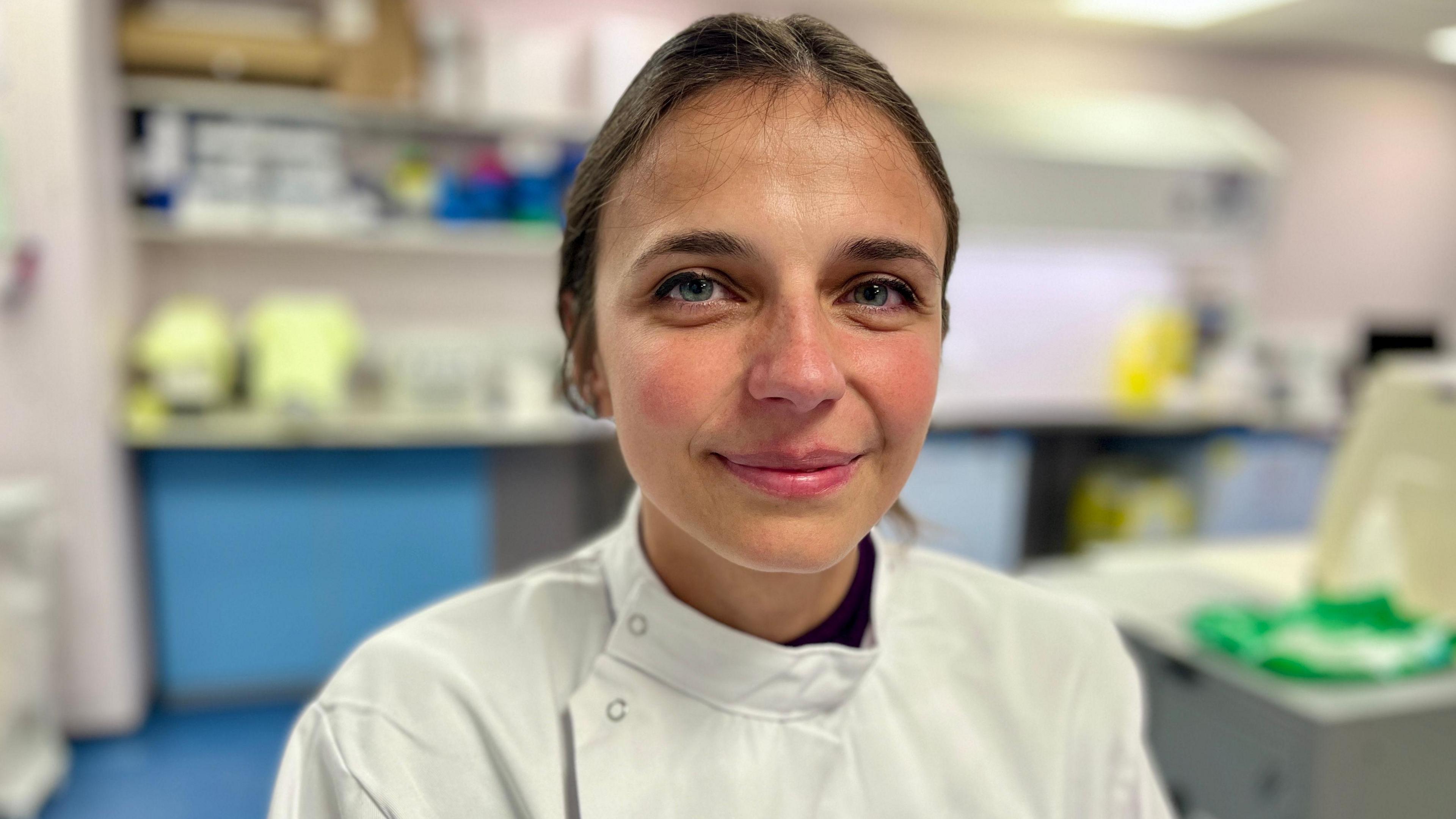
Dr Maura Malpetti says 20,000 people in the UK have frontotemporal dementia
Dr Malpetti said people with frontotemporal dementia were often misdiagnosed.
"It is confused with psychiatric conditions because of the behavioural changes or the language problems," she said.
Her team is looking at how the presence of certain proteins in the blood could indicate the likelihood of future inflammation in the brain.
Changes in the blood could be present decades before the onset of physical symptoms and they were usually only picked up by scans, which took longer to carry out and required specialist equipment.
'I was diagnosed with dementia in my 40s'
- Published29 January
Can we change how our brains age? These scientists think it’s possible
- Published10 July 2024
We need more help, says former footballer with dementia diagnosis
- Published11 March
A major problem facing trials for new dementia drugs is that they often involve patients who have already received a diagnosis.
It means they are already showing symptoms - but by this time, it may be too late for the drugs to make a difference.
Identifying individuals decades before they show symptoms allows researchers to trial drugs to see if they reduce the risk of dementia.
Three hundred patients were being recruited at 20 centres across England and Dr Malpetti said the trial would eventually be rolled out to 1,000 participants.
The study is one of a number of dementia blood tests being developed in the UK, including one at the University of Oxford., external
Dr Malpetti said they hoped to see "tremendous" developments in the next five years because of the number of inflammation studies.
"I think there's been a revelation in the field of blood tests because this allows us to use more accessible and scalable tests," she said.
'Empowering families'
Dr Malpetti said they would freeze the samples so that if a new inflammation marker was discovered, they could go back and test that in the blood.
She added an earlier diagnosis would empower families, allowing them to contribute to research to find a cure.
"The earlier we understand the changes in the brain, maybe we can stop or slow down the symptoms while the person is still well," she said.
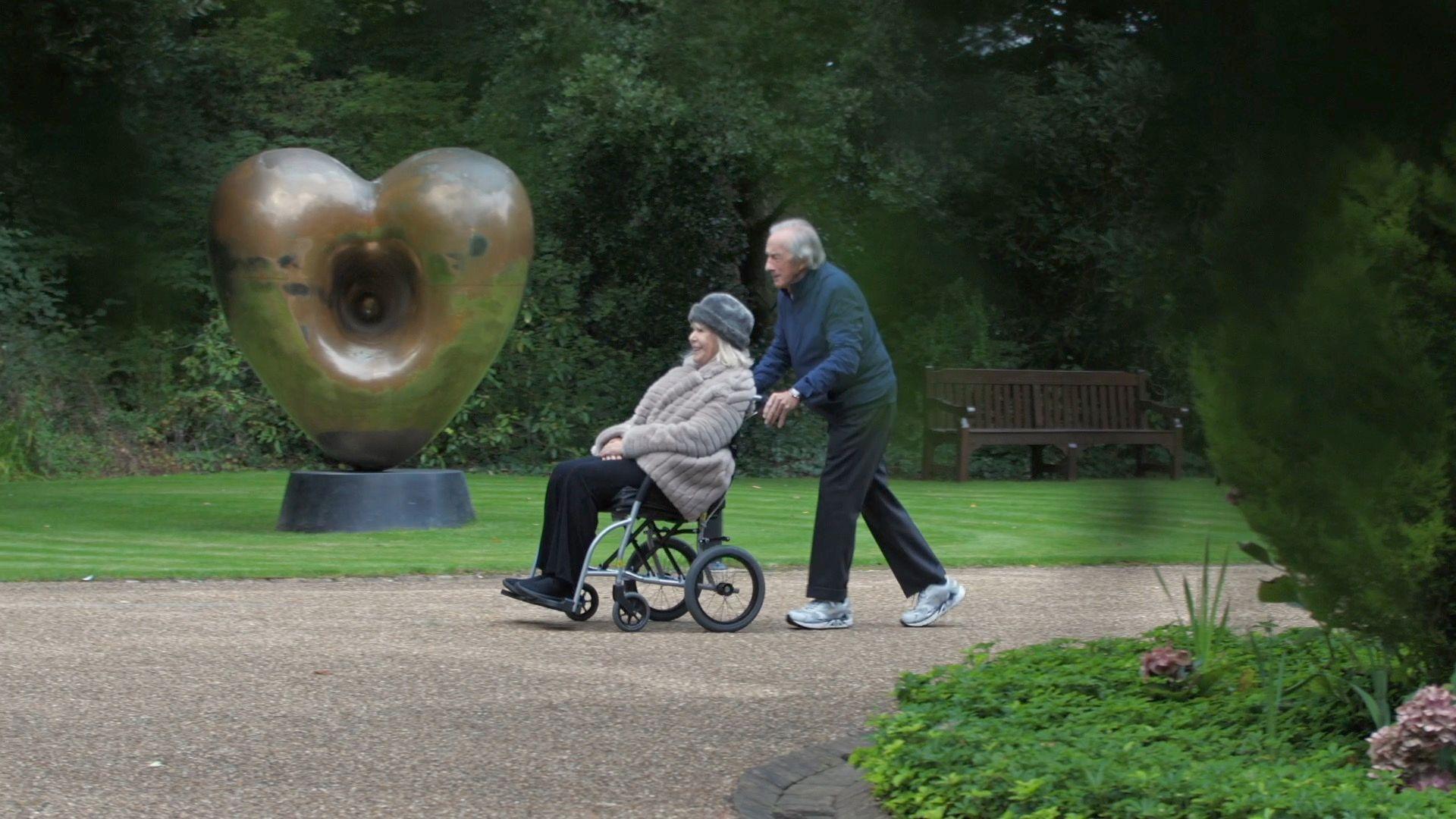
Sir Jackie says to bring his wife to the UK, she has to have a nurse sit either side of her on the aeroplane
Sir Jackie said Formula One brought funding and business acumen to health research.
The most recent fundraiser was the One Lap Challenge, external ahead of the Bahrain Grand Prix.
"When you have a problem in Formula One [clicks his fingers] it's fixed... they're also changing it [technology] all the time, because they have enthusiasm, and they see the results," he said.
Dr Malpetti said she hoped charities like Race against Dementia could transform research, helping it to progress faster.
Sir Jackie said he hoped a cure could be found in his lifetime.
"I want this to happen just as much as I wanted to be world champion," he said. "It's terribly important."
If you have been affected by any of the issues raised in this story, you can visit the BBC Action Line.
Get in touch
Do you have a story suggestion for Cambridgeshire?
Follow Cambridgeshire news on BBC Sounds, Facebook, external, Instagram, external and X, external.
Related topics
- Published13 February
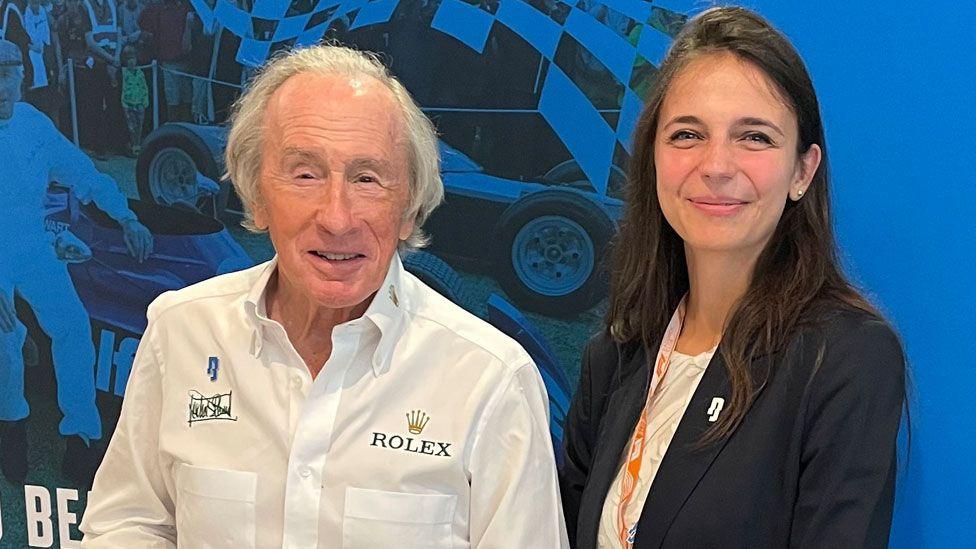
- Published24 December 2024
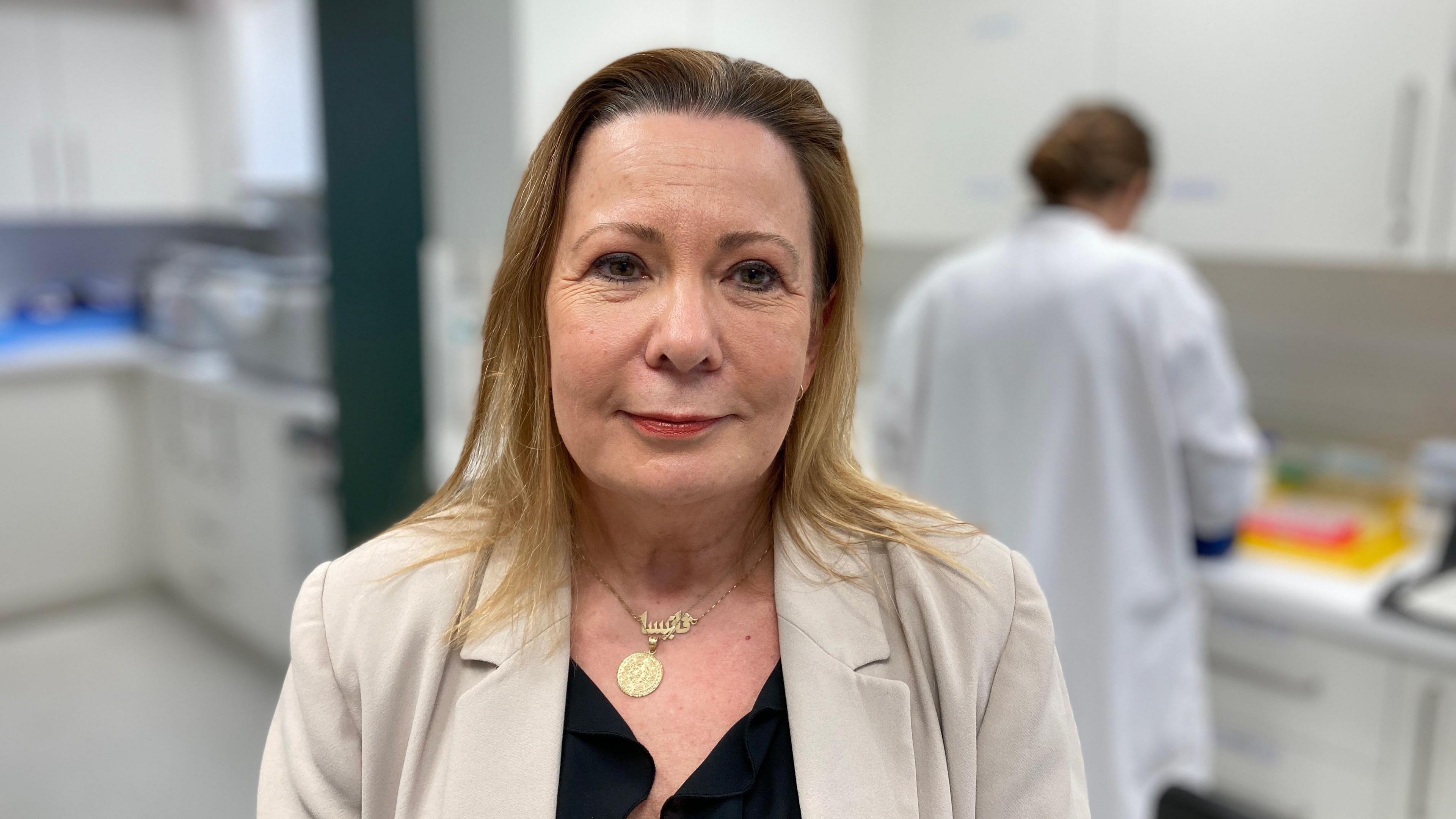
- Published4 April 2024
